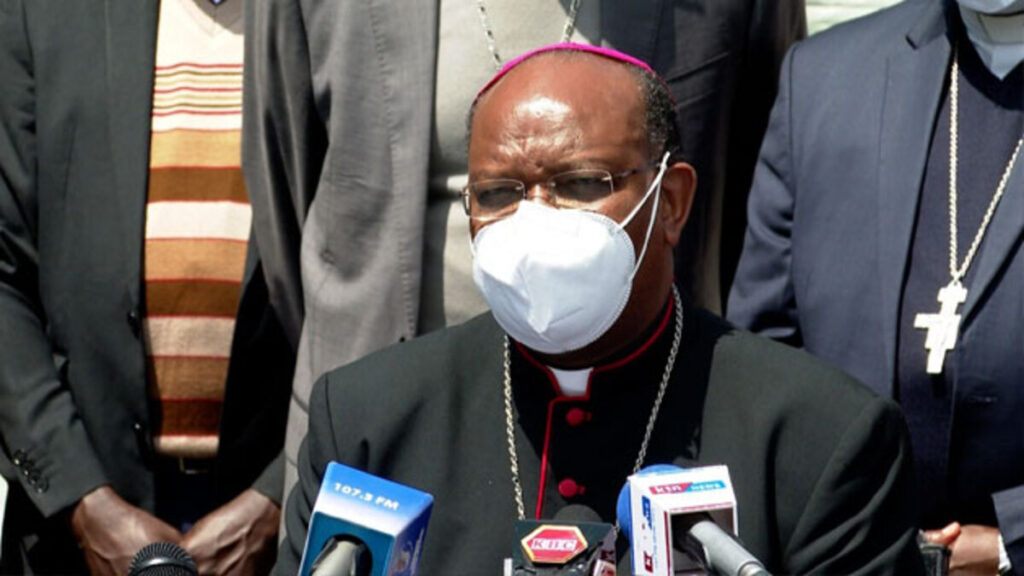Government officials have launched a fierce response to the Kenya Conference of Catholic Bishops (KCCB). The bishops released a bold statement on Thursday criticising the state of the nation.
The KCCB highlighted twelve major issues affecting Kenyans in their comprehensive statement. They claimed that citizens are “going through hell” due to various challenges.

Bishop Anthony Muheria of Nyeri during an earlier Press Briefing; Courtesy Photo
President William Ruto led the government’s response to the bishops’ criticism. He urged the religious leaders to “stop playing to the gallery” in their public statements.
The bishops had raised serious concerns about the rising cost of living. They pointed out that many Kenyans are struggling to make ends meet.
One key issue highlighted in the KCCB statement was the problem of over-taxation. The bishops argued that new tax measures are putting excessive burdens on citizens.
The statement also addressed the growing unemployment crisis, especially among young people. They emphasised the need for urgent action to create job opportunities.
Additionally, the Catholic leaders expressed deep concern about corruption in public sectors. They called for more effective measures to combat graft in government institutions.
The bishops did not spare the education sector in their criticism. They pointed out various challenges facing students and institutions across the country.
Another significant concern raised was the controversial digital identification system. The bishops questioned its implementation and impact on citizens.
The KCCB’s statement reflected growing public discontent with current economic conditions. They emphasised the widening gap between rich and poor in society.
Government officials reacted strongly to these criticisms. Many viewed the bishops’ statement as an unfair attack on the administration’s efforts.
The confrontation has sparked debate about the role of religious institutions in national affairs. Some support the bishops’ right to speak out, while others question their approach.
President Ruto’s administration has been particularly sensitive to criticism of its economic policies. They maintain that their strategies will benefit Kenyans in the long run.
The tension between church and state has a historical precedent in Kenya. Religious leaders often serve as vocal critics of government policies.
Catholic bishops manage numerous schools and healthcare facilities nationwide. This gives them firsthand experience with the challenges facing ordinary Kenyans.
Their extensive network of institutions provides them with unique insights into social issues. They regularly interact with communities across different social classes.
The KCCB’s statement appears to have touched a nerve within government circles. Officials seem particularly concerned about its potential impact on public opinion.
Many Kenyans are keenly interested in this developing situation. The clash represents broader debates about governance and accountability.
The bishops’ criticism comes at a time of increasing economic pressure on households. Many families are struggling with rising prices and new tax measures.
Government officials have defended their policies vigorously. They argue that current reforms are necessary for long-term economic stability.
The situation highlights the delicate balance between religious advocacy and government authority. Both institutions claim to represent the interests of ordinary citizens.
As the debate continues, many observers note its potential impact on church-state relations. The outcome could influence future interactions between religious leaders and the government.
The Catholic Church has traditionally played a significant role in Kenya’s social discourse. Their statements often carry considerable weight in public debates.
This confrontation raises questions about freedom of expression in national dialogue. It also tests the government’s tolerance for criticism from religious institutions.



















